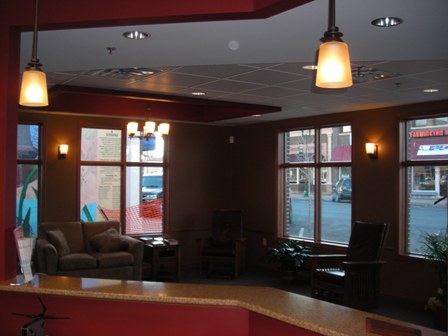See this article for the Minnesota Real Estate Journal. Great outlook for small to medium size companies and industrial real estate.
Small and Mid-sized industrial users gain momentum and look long-term
Posted By Staff Writer On December 27, 2011 (4:44 pm) In CIP Column, Home Column
By Dan Brown
President-Brown Commercial Group, Inc.
As the brunt of the recession fades from memory, small to mid-sized businesses are approaching the industrial market with renewed confidence. The result is a focus on long-term planning, which is prompting an uptick in activity and pushing vacancy rates downward.
According to Colliers International, a surge in user demand helped boost industrial leasing activity throughout the Chicago market by more than 27 percent from the second quarter of 2011 to the third quarter. The vacancy rate fell nearly one half of one percentage point during that period, from 11.76 to 11.28 percent. 
Many businesses have spent the last two years streamlining operations and paying off debt to protect and enhance their position in the marketplace. As they emerge from the economic downturn with stronger balance sheets, they are feeling more confident and are looking longer term when evaluating space.
During the height of the recession and its immediate aftermath, many small to mid-sized industrial businesses were signing one year leases, as they retrenched and reacted to economic conditions. Those that have weathered the storm are now feeling more secure and willing to plan ahead three to five years.
The long-term horizon is a good move for today’s tenants, as it allows them to leverage existing market conditions and lock in at lower lease rates.
This approach—getting your house in order through an evaluation of a business’ financial and business plans—is as sound today as it was two or three years go. Businesses—and the landlords that lease them space—no longer are willing to take the types of risks in bankrolling space like they did in the past.
Longer term financial planning –of at least three to five years– is essential when weighing today’s real estate decisions, as it allows business owners to see the ups and downs of sales and inventory as well as income and expense streams over a longer time horizon.
High Quality Industrial Space in Short Supply
In markets that are attractive for the small to mid-size user, statistics further demonstrate the market improvement. For example, in the O’Hare submarket, the vacancy rate fell from 13.17 to 12.04 from the second to third quarter. Leasing activity rose by 1.64 millions square feet, a 39.2 percent increase and the highest increase in the past two years.
In the Elgin/I-90 submarket, the vacancy rate dropped from 13.35 percent to 12.17 percent during that period. Leasing activity was concentrated among small users and totaled 185,900 square feet, a 43.7 percent increase from the second quarter, according to Colliers International.
As this recent growth has occurred, companies are finding that high quality industrial space is difficult to find. Buildings catering to users of 50,000 square feet or less with tall ceiling heights and good access to regional transportation are in such short supply and that it is pushing some sales prices upward.
Brown Commercial, for example, represented a company wanting to purchase a well maintained building in a prime Franklin Park location. With few alternatives that met the buyer’s needs, a bidding war occurred and pushed the purchase price to approximately 10 percent more than the list price. While just a snapshot of the overall suburban industrial market, this example shows how basic market fundamentals (good location and good building amenities) continue to drive the market.
Rent Concessions are Easing
This renewed interest in expanding or upgrading space has translated into increased activity in certain markets. This starts a positive chain of events: vacancy rates are beginning to drop and, consequently, rent concessions are starting to ease.
Improvements in the Lending Environment
The lending environment also is improving, as banks become more willing to take modest risks. Further, there is an increased level of activity with the various SBA loans, as they require only a 10 percent down payment from the business and a smaller funding level from the local bank. The combination of incentives available and low interest rates means that capital available has never been more attractive. Consequently, the volume of loans being made to small businesses looking to acquire or renovate real estate remains strong.
While the market still has a ways to go to return to “normal,” there are many signs that Chicago’s industrial market has turned a significant corner. For users of 50,000 square feet and under, those signs are steady corporate growth, renewed interest in facility upgrades and building purchases, and a focus on expansion.
These small to mid-sized users are important to the long term viability of the market. As we see positive signs of momentum, it bodes well for the entire market as we head into 2012.
Dan Brown is president of Brown Commercial Group, Inc. a privately held commercial real estate company in Elk Grove Village specializing in leasing and selling industrial, office and investment property, and assisting clients with land acquisition and new construction projects.
�
Article taken from REJournals.com – http://www.rejournals.com
URL to article: http://www.rejournals.com/2011/12/27/small-and-mid-sized-industrial-users-gain-momentum-and-look-long-term/



